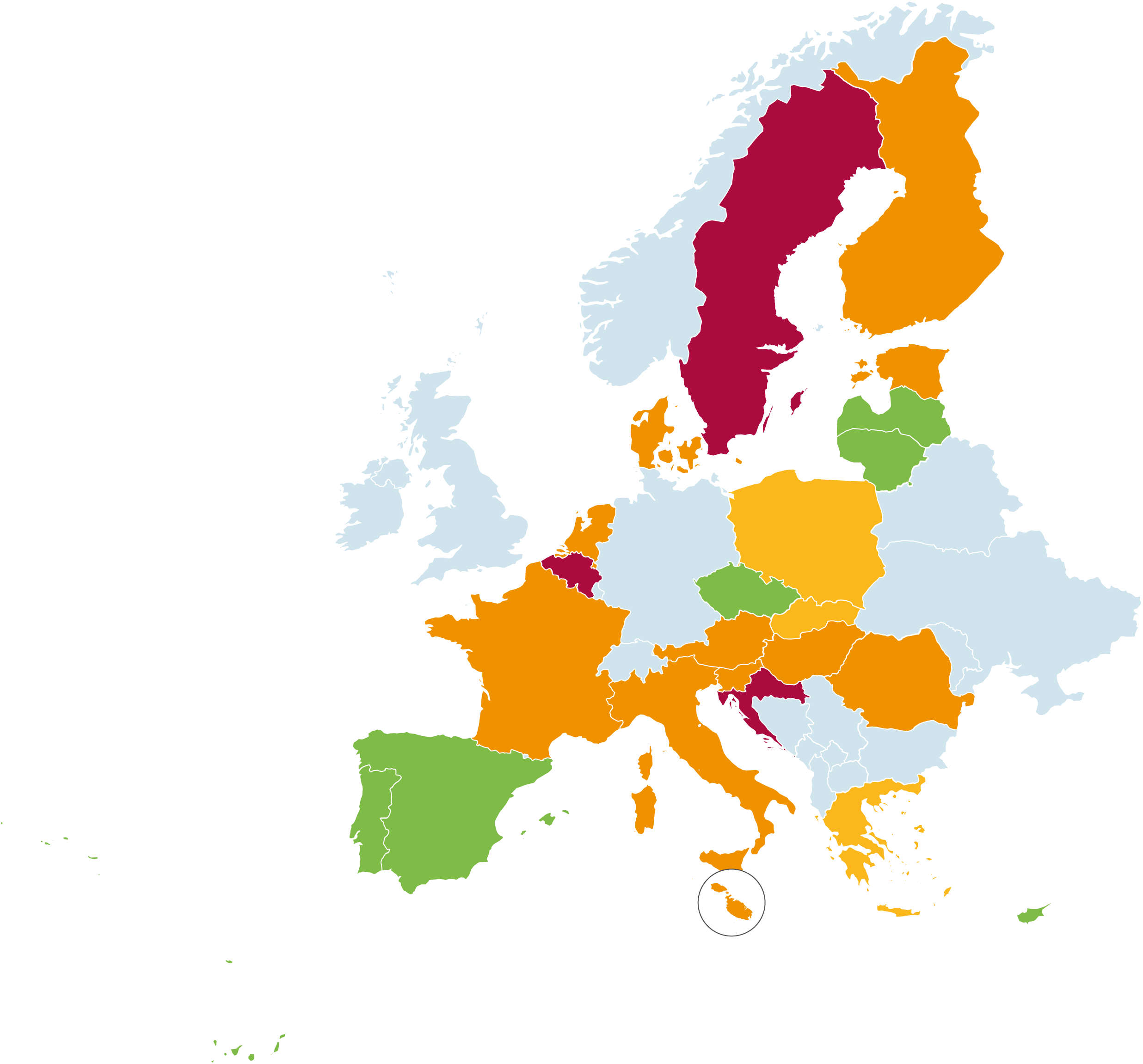Financing tracker
Financing tracker
Governments across the EU are encouraged to leverage public funds to support energy communities, and thus to accelerate the energy transition, promote citizen inclusion, and garner acceptance towards renewables.
This tracker is a collaborative piece of work between REScoop.eu, CEE Bankwatch Network, and Climate Action Network, comprehensively assessing whether EU public funds (Recovery and Resilience Funds & their REPowerEU chapters, Cohesion & Structural Funds, and Modernisation Funds), are being used by Member States to support energy communities.
We aim for this (evolving) analysis to be used as an advocacy tool by national campaigners, and as a clear communication roadmap for policymakers.
This tracker has been updated with information that was available to us as of May 2023. It is subject to change based on new information we receive.

How to understand and use this tracker
The map has been colour coded based on four tiers:
- First, a number of member states simply ignored energy communities. There were no mentions of energy communities or related concepts in the targeted operational programs. We marked those countries in red.
- Second, some member states mentioned energy communities in their programs but in a very limited capacity. Either energy communities were only included as a target amongst many others, or the scope of actors and activities was limited. We marked those countries in orange.
- Third, member states added energy communities to their programs. Energy communities were specifically targeted which allows us to hope for specific programs to be built tailored to their needs. However, energy communities where often then limited to a specific type of actor or a specific activity (e.g., energy communities consisting only of Municipalities, or businesses). This is not in line with the European definitions CEC and REC, and will thus not produce the expected impact. We marked those countries in yellow.
- Forth, the member states included energy communities in their programs, with specific programs targeting their needs, and with a full scope of activities and actors included. These fulfil the objectives and requirements of EU funding guidelines. We marked those countries in green.
The overall colour given to a certain fund, for a certain country, was tabulated based on 12 sub-criteria touching on various topics such as broader program design, transparency, and alignment with transposition.
Some countries have both national and regional Cohesion & Regional Development programs. We assessed these programs together, tabulating an average colour-grading, across the different available programs.
How we assessed each country’s funds implementation
The methodology underpinning the present research consisted of the following four steps:
- Creation of the subset of the 12 sub-criteria, on which the qualitative analytical framework was based.
- In-depth analysis, by national campaigners, of all the publicised materials regarding national public financing plans.
- Interviews and discussions with Managing Authorities and other relevant stakeholders from different Member States to complement the research inputs from Step 2.
- Iterative feedback on the collated material from the involved campaigners, as well as additional stakeholders.
Mentions
This analysis was carried through in collaboration with CEE Bankwatch Network, and Climate Action Network. We would like to express our gratitude to the following national organisations for their invaluable contributions to the research: ènostra, Energie Samen, Bündnis Bürgerenergie, Malta Co-operative Federation, Energie Partagée, Za Zemiata (For the Earth), Estonian Green Movement, Friends of the Earth - CEPA, Centre for Transport and Environment, National Society of Conservationists - Friends of the Earth Hungary, Polish Green Network, Green Liberty, Bankwatch Romania, The Green Tank, FOCUS Association for Sustainable Development, Žiedinė ekonomika, and Eco-Union.
Updates to the tracker
This financing tracker will be frequently updated with new developments in how countries implement EU public funds in their national financing programmes.
In case you have additional information on your countries' EU public funds implementation or you have comments/corrections on the existing information, please contact directly chris.vrettos@rescoop.eu.